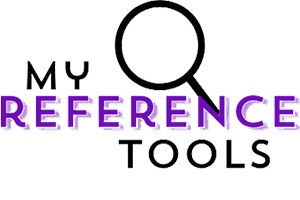Unlock Greater Mental Focus at Work with Healthy Routines

Mental focus is the powerhouse behind productivity. Whether you’re an entrepreneur managing multiple projects or a professional in a fast-paced office, your ability to concentrate can make the difference between success and stress. Many of us struggle to maintain focus, not because we lack discipline, but because our daily habits sometimes work against us. The good news? Building a set of healthy routines can dramatically enhance mental clarity, reduce fatigue, and allow you to perform at your best.
This in-depth guide explores the science-backed routines and practical strategies you can incorporate to boost your mental focus at work.
The Foundation of Mental Focus
Mental focus refers to your brain’s ability to concentrate attention on a specific task while filtering out distractions. When your focus is sharp, problem-solving becomes easier, creativity flows, and tasks get completed more efficiently. However, focus isn’t an inexhaustible resource. Like a muscle, it tires from misuse and strengthens with consistent, targeted effort.
Establishing daily habits that reinforce your natural rhythms and support cognitive function is crucial. Simple lifestyle tweaks, like adjusting your work schedule to align with your natural energy peaks (also known as your ultradian rhythm), can make a world of difference. For instance, if you feel most alert mid-morning, schedule your high-priority tasks during that window for maximum productivity.
By adopting a proactive approach, you set the stage for sustained workplace performance and greater job satisfaction.
The Role of Sleep in Focus
A good day at work starts the night before. Sleep is the ultimate mental reset; it allows the brain to process information, consolidate memories, and clear away mental clutter. Numerous studies have shown that inadequate sleep impairs reasoning, attention span, and working memory.
Tips for quality sleep and recovery:
- Maintain a consistent sleep schedule. Go to bed and wake up at the same times, even on weekends, to stabilize your internal clock.
- Limit screen time before bed. Avoid screens at least an hour before bedtime. Consider using blue-light-blocking glasses or enabling “night mode” on devices if you must work late.
- Create a restful environment. Invest in blackout curtains, a comfortable mattress, and ensure your bedroom is quiet and cool for optimal rest.
- Practice a wind-down routine. Engage in calming activities like light reading, listening to soothing music, or practicing relaxation techniques like progressive muscle relaxation to signal your brain it’s time to sleep.
Prioritizing quality sleep not only improves your focus but also enhances your mood and overall health.
Start the Day with Purposeful Morning Rituals
Your morning habits set the tone for how the rest of your day unfolds. Jumping straight into work without taking time to mentally prepare can lead to disorganization and stress. By creating a morning routine, you prime your brain for focus from the outset.
Key elements of a focus-boosting morning routine:
- Hydrate immediately. After hours of fasting overnight, your body needs hydration to function optimally. Start with a glass of water to rehydrate your brain and body before reaching for coffee or tea.
- Practice mindfulness. Even five to ten minutes of meditation can help clear mental fog and cultivate attention. Apps like Calm or Insight Timer make it easy to start if you’re new to meditation.
- Plan your day with intention. Use a planner or task management app to outline your top three priorities for the day. Tackling these first reduces decision fatigue and sets you up for success.
- Add physical activity. Incorporate movement into your morning, whether it’s a 15-minute yoga session, a brisk walk outside, or a quick set of bodyweight exercises. This improves circulation and gets your brain ready for action.
When you create a purposeful morning ritual, you start your day energized, clear-headed, and ready to perform.
Nutrition Strategies for Sustained Concentration
The brain is a high-energy organ, burning through about 20% of your daily calories. Choosing foods that nourish rather than deplete your mental abilities is essential for focus and productivity.
Eating habits to promote concentration:
- Fuel your morning wisely. Instead of sugary cereals or pastries, opt for a balanced breakfast that includes protein, healthy fat, and complex carbs. For example, avocado toast with a boiled egg or a smoothie with spinach, almond butter, and chia seeds provides slow, steady energy.
- Focus on brain-supporting superfoods. Include foods like walnuts, blueberries, salmon, and dark chocolate in your diet. These are rich in antioxidants, omega-3 fatty acids, and other nutrients that support brain function.
- Avoid sugar spikes. A midday donut may sound tempting, but the rapid blood sugar spike and crash that follows can drain your energy. Instead, have snacks like nuts, a banana, or Greek yogurt to sustain your focus.
- Stay hydrated. Even mild dehydration can impair focus and memory. Keep a water bottle at your desk and aim to drink regularly, even if you’re not thirsty.
By fueling your brain intentionally, you maintain sharper focus and a steadier mood throughout your working hours.
Build Movement into Your Workday
Sedentary behavior is one of the biggest culprits in draining mental energy. Long hours of sitting at a desk can reduce blood flow to the brain and create stiffness, leading to reduced productivity and increased fatigue.
Simple ways to integrate movement without disrupting work:
- Set timers for movement breaks. Stand up, stretch, or do a few jumping jacks every hour. These small bursts of activity reinvigorate your body and mind.
- Walk-and-talk meetings. If possible, propose walking meetings with colleagues. Fresh air and light physical activity can spark creativity and keep discussions engaging.
- Desk exercises for busy days. Practice seated stretches, like reaching for your toes or twisting your torso gently to each side.
- Optimize your commute. If you live close to the office, consider walking or biking to work to get some morning exercise.
Making a conscious effort to stay active will keep your energy levels steady and your mind sharp.
Harness the Power of Breaks
Taking breaks isn’t slacking off; it’s a proven method for maintaining mental stamina. Research shows that after about 90–120 minutes of intense focus, the brain begins to fatigue, leading to diminishing returns on effort.
The Pomodoro Technique in action:
- Choose a task to focus on and set a timer for 25 minutes.
- Work without interruption for the full duration.
- When the timer dings, take a 5-minute break to stretch, drink water, or step outside.
- After four cycles, enjoy a longer 15–30 minute break.
This method helps you work smarter, not harder. During breaks, consider physical movement or stepping away from screens entirely to rejuvenate your mind.
Create an Environment Optimized for Focus
Your surroundings significantly impact your ability to focus. From cluttered desks to noisy neighborhoods, environmental distractions can sap your energy and reduce productivity.
Tips to design a focus-friendly workspace:
- Declutter regularly. An organized desk creates an organized mind. Spend a few minutes at the end of each day tidying up your workspace.
- Minimize digital distractions. Enable “do not disturb” settings during critical tasks or dedicate specific times to check emails and messages.
- Introduce calming elements. Consider adding desk plants for visual relief and improved air quality. Succulents or small ferns work well in office environments.
- Control noise levels. Use noise-cancelling headphones to block out background distractions, or play instrumental music or white noise to stay focused.
By curating an environment that encourages concentration, you empower yourself to take control of your mental focus.
Manage Digital Distractions
We’ve all experienced it. A quick glance at your phone turns into 20 minutes lost scrolling through apps. While technology is an integral part of work, managing it wisely is key to maintaining focus.
How to stay in control of your devices:
- Turn off non-essential notifications. Every ping and buzz derails your attention. Disable notifications for social media, shopping apps, or anything unrelated to work.
- Batch email and message checking. Reserve specific times for responding to emails and messages rather than reacting to each one as it arrives.
- Try productivity tools. Apps like Freedom or StayFocusd temporarily block access to distracting websites during work hours.
- Practice digital detoxing. Every few weeks, take a full day without screens to reset your habits and reconnect with offline experiences.
When you make technology work for you instead of against you, your mental focus improves dramatically.
Leverage Mindfulness and Mental Training
Mindfulness isn’t just for yogis. It’s a valuable skill that trains you to stay present and resist distractions. The benefits extend beyond sharper focus to include better emotional regulation and stress management.
Simple ways to practice mindfulness at work:
- Start your morning with a 10-minute meditation to center yourself before work.
- Incorporate “micro-mindfulness” moments, like taking three deep breaths before opening an email or starting a new project.
- Keep a gratitude journal to shift your mental perspective and foster positivity, which can enhance creativity and focus.
Even small steps towards mindfulness can lead to big shifts in your ability to stay present.
Prioritize Work-Life Balance
Burnout saps focus. By maintaining a healthy balance between work and leisure, you can preserve mental energy and sustain high performance over the long term.
Ideas for nurturing work-life balance:
- Stick to your boundaries. Set firm work start and end times, especially when working from home.
- Pursue enjoyable hobbies. Activities like gardening, painting, or playing a musical instrument recharge your mental batteries.
- Plan quality downtime. Schedule social outings, family dinners, or solo time outdoors to rest and reset.
Work-life harmony isn’t just a personal indulgence; it’s a productivity strategy.
Experiment and Personalize
There’s no one-size-fits-all answer for focus. Some thrive on morning exercise, while others do their best work deep into the evening. Track your habits and assess what yields the best results.
Start small. Introduce one or two strategies to your routine this week. Over time, add more practices as you build momentum and see improvements in your mental clarity and job performance.
Put Healthy Focus Habits into Practice
Elevating your mental focus is not about dramatic transformation overnight, but rather the sum of small, consistent improvements. A healthy sleep schedule, smart nutrition, regular movement, purposeful breaks, and managed digital distractions create the foundation for sharper attention and higher productivity.
Begin today by choosing one habit to adopt. Whether it’s starting your morning with intent or simply standing up once an hour, these incremental changes will soon add up to a stronger, more focused you.



